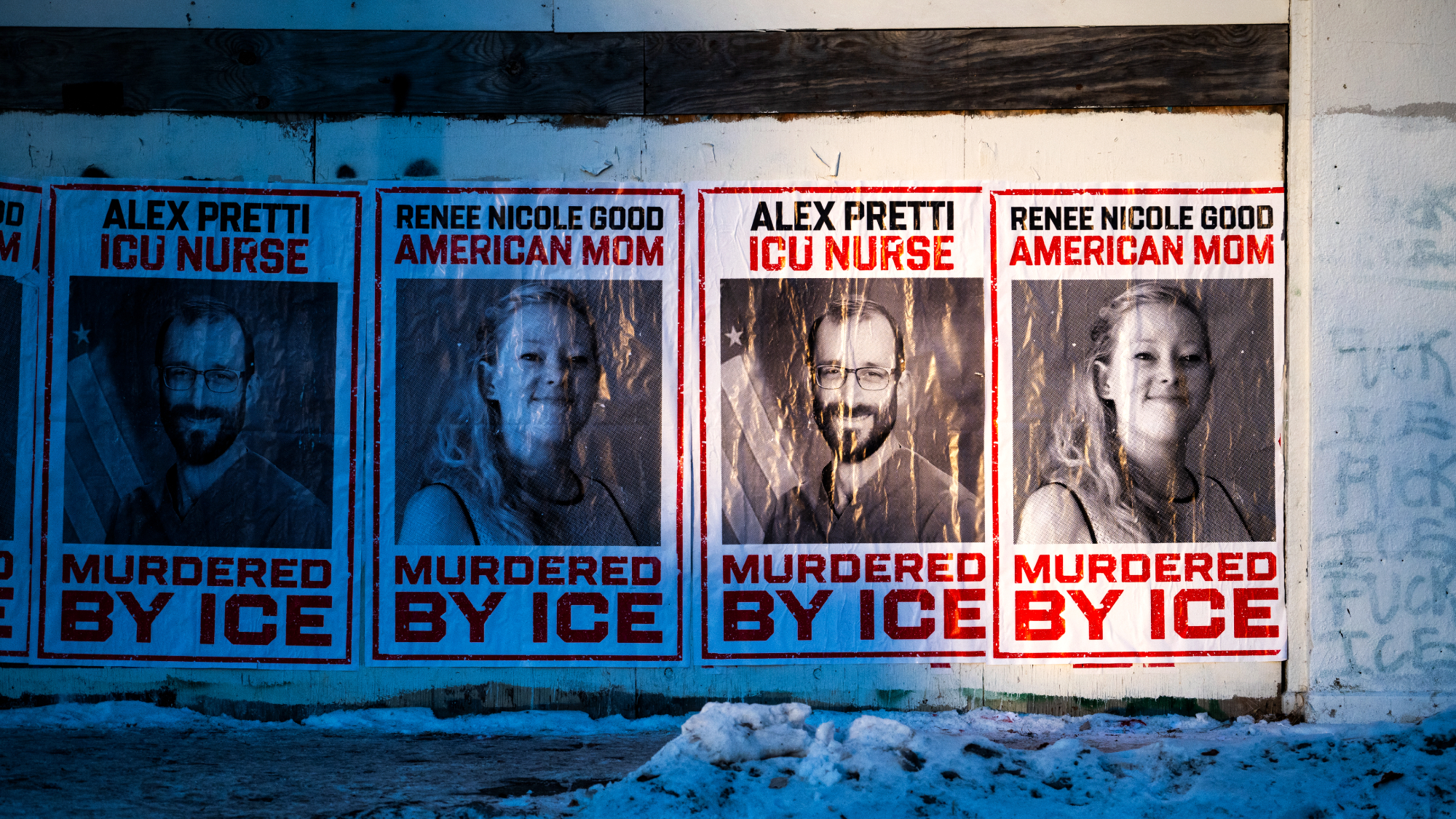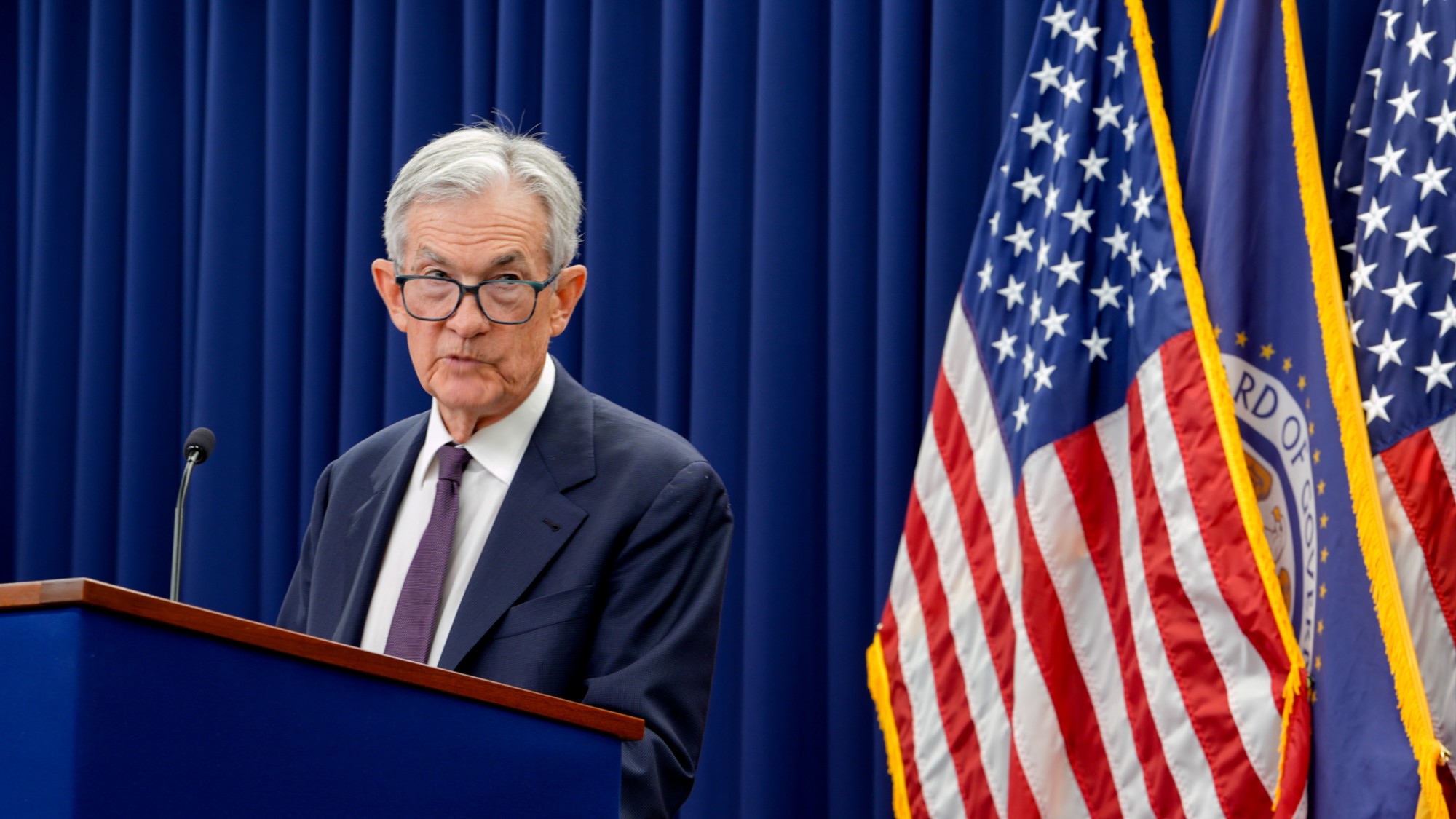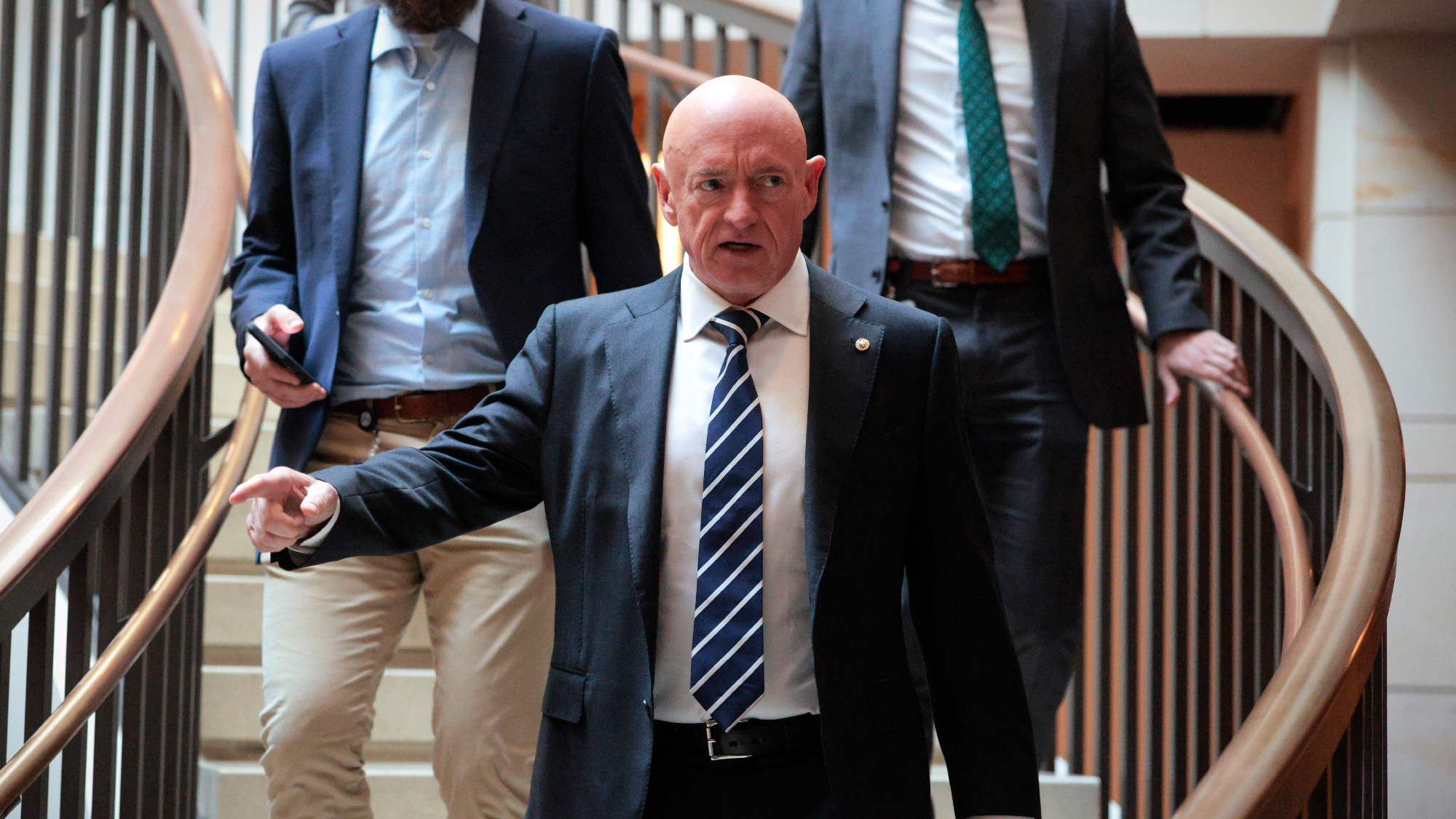American Jesuits pledge $100 million for descendants of slaves they owned, sold

A free daily email with the biggest news stories of the day – and the best features from TheWeek.com
You are now subscribed
Your newsletter sign-up was successful
The Jesuits, a Catholic order of priests that counts Pope Francis among its members, have pledged to raise at least $100 million to atone for the order's ownership and sale of enslaved Black people in the early days of the American republic, The New York Times reported Monday. Historians and Catholic officials said it is one of the largest efforts by an institution to atone for participating in slavery.
The money will be paid out through a new foundation, the Descendants Truth and Reconciliation Foundation, created through three years of discussions between Jesuit leaders and a group representing the descendants of 272 slaves the order sold to a Louisiana plantation in 1838 to save Georgetown College, now Georgetown University, the first Catholic institution of higher learning in the U.S. The sale raised $115,000, or about $3.3 million in today's dollars. Genealogists at the Georgetown Memory Project have identified about 5,000 living descendants of people enslaved by the Jesuits.
The new foundation is headed by one of the descendants, Joseph Stewart, and its governing board includes representatives from Georgetown and other institutions with roots in slavery. The Jesuits have already contributed $15 million and plan to raise the other $85 million over the next five years. About half the annual budget will go toward grants for organizations engaging in racial reconciliation, a quarter will fund educational grants and scholarships for descendants, and some of the money will go directly toward supporting the needs of old and infirm descendants, the Times reports.
The Week
Escape your echo chamber. Get the facts behind the news, plus analysis from multiple perspectives.

Sign up for The Week's Free Newsletters
From our morning news briefing to a weekly Good News Newsletter, get the best of The Week delivered directly to your inbox.
From our morning news briefing to a weekly Good News Newsletter, get the best of The Week delivered directly to your inbox.
Stewart wrote the Jesuit leadership in Rome in May 2017, calling for negotiations over the newly resurfaced Georgetown slave sale. The Jesuit superior general, Rev. Arturo Sosa, wrote back a month later, urging Stewart's group and American Jesuits to talk and describing the order's slaveholding past as "a sin against God and a betrayal of the human dignity of your ancestors." In August 2017, Rev. Timothy Kesicki, president of the Jesuit Conference of Canada and the United States, flew to Michigan to meet with the Stewarts and lay the groundwork for the new foundation.
"This is an opportunity for Jesuits to begin a very serious process of truth and reconciliation," Fr. Kesicki said in a statement. "Our shameful history of Jesuit slaveholding in the United States has been taken off the dusty shelf, and it can never be put back."
A free daily email with the biggest news stories of the day – and the best features from TheWeek.com
Peter has worked as a news and culture writer and editor at The Week since the site's launch in 2008. He covers politics, world affairs, religion and cultural currents. His journalism career began as a copy editor at a financial newswire and has included editorial positions at The New York Times Magazine, Facts on File, and Oregon State University.
-
 Can Europe regain its digital sovereignty?
Can Europe regain its digital sovereignty?Today’s Big Question EU is trying to reduce reliance on US Big Tech and cloud computing in face of hostile Donald Trump, but lack of comparable alternatives remains a worry
-
 The Mandelson files: Labour Svengali’s parting gift to Starmer
The Mandelson files: Labour Svengali’s parting gift to StarmerThe Explainer Texts and emails about Mandelson’s appointment as US ambassador could fuel biggest political scandal ‘for a generation’
-
 Magazine printables - February 13, 2026
Magazine printables - February 13, 2026Puzzle and Quizzes Magazine printables - February 13, 2026
-
 Trump sues IRS for $10B over tax record leaks
Trump sues IRS for $10B over tax record leaksSpeed Read The president is claiming ‘reputational and financial harm’ from leaks of his tax information between 2018 and 2020
-
 Trump, Senate Democrats reach DHS funding deal
Trump, Senate Democrats reach DHS funding dealSpeed Read The deal will fund most of the government through September and the Department of Homeland Security for two weeks
-
 Fed holds rates steady, bucking Trump pressure
Fed holds rates steady, bucking Trump pressureSpeed Read The Federal Reserve voted to keep its benchmark interest rate unchanged
-
 Judge slams ICE violations amid growing backlash
Judge slams ICE violations amid growing backlashSpeed Read ‘ICE is not a law unto itself,’ said a federal judge after the agency violated at least 96 court orders
-
 Rep. Ilhan Omar attacked with unknown liquid
Rep. Ilhan Omar attacked with unknown liquidSpeed Read This ‘small agitator isn’t going to intimidate me from doing my work’
-
 Democrats pledge Noem impeachment if not fired
Democrats pledge Noem impeachment if not firedSpeed Read Trump is publicly defending the Homeland Security secretary
-
 The billionaires’ wealth tax: a catastrophe for California?
The billionaires’ wealth tax: a catastrophe for California?Talking Point Peter Thiel and Larry Page preparing to change state residency
-
 Hegseth moves to demote Sen. Kelly over video
Hegseth moves to demote Sen. Kelly over videospeed read Retired Navy fighter pilot Mark Kelly appeared in a video reminding military service members that they can ‘refuse illegal orders’
